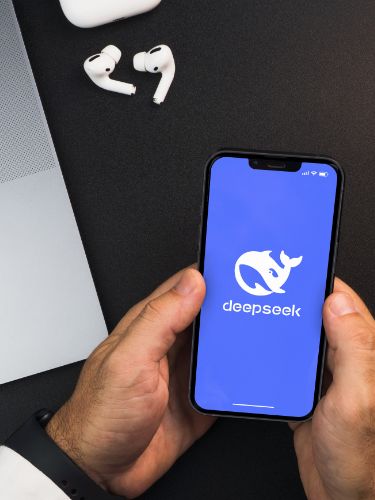
How MuleSoft Facilitates Personalized Experiences for Agents

How MuleSoft Facilitates Personalized Experiences for Agents

Reinventing IT Architecture with Multi-Agent AI

Revolutionising Customer Knowledge with AI: What Ecommerce Teams Need to Know

Unlocking the Financial Power of Loyalty in Beauty: Trends Shaping Customer Engagement in 2025

Driving Growth in the Beauty Industry: Insights from the 2024 Omnichannel Retail Index

The Evolution of Intelligent Agents in Business—and Why You Need to Start Before Feeling Ready

Salesforce Informatica and Data Cloud

Unlocking Cost Savings Through Managed Services: Where Companies Waste the Most Money (and How to Stop It)

The Growing Challenge of Churn in Insurance—and What’s Driving It

It’s All About Data

How Data-Driven Insurers Are Building the Future of Customer Experience

From Cost to Value How to Turn Your Contact Center into a Strategic Growth Engine

Key Shifts in the Personalization Experience: Powering a New Era of Marketing Performance

Riding the Agentic Wave: How AI Agents are Transforming WhatsApp in Brazil

The Rise of Intelligent Allies: How AI Agents are Revolutionizing Business

Unlocking the Financial Power of Loyalty: Trends Shaping the Mechanics of Customer Engagement in 2025

Navigating the Complexities: Overcoming Trade Promotion Management Challenges

Demystifying AI: Understanding the Core Concepts behind AllAi Part I - Neural Networks

Demystifying AI: Understanding the Core Concepts behind AllAi Part II – LLMs and The Art of Prompting

The Agentic Revolution: Transforming French SMEs and ETIs with AI

Unlocking Success: A Deep Dive Into Trade Promotion Management (TPM)

Why Businesses Must Embrace the Agentic Revolution in 2025

Agentic AI: Transforming Information Systems

Transforming the Beauty Industry with AI and Autonomous Agents

Integrating Agentforce 2.0 with MuleSoft: Advancing Intelligent Automation

The Strategic Advantage of Outsourcing: Managed Services Explained

The Advent of DeepSeek: A Game-Changer in AI Transformation

The Best of NRF: 2025 Trends for Businesses Everywhere

Digital Transformation Can Be Hard—We Make It Easier

How to Build a Winning Data Strategy for Omnichannel Success

First Day at NRF2025: A Glimpse into the Future of Retail

How Agentic Architectures Will Evolve and Replace Current Information Systems

Unlocking data extraction from physical documents with Intelligent Document Processing

How to Build a Winning Data Strategy for Omnichannel Success in the Beauty Industry

Why Data Governance is the New Essential in Beauty Retail

Delivering Transformation in Airports: Navigating Growth, Data, and Traveler Expectations

Unlocking the Power of Data and AI for Airports: Enhancing Traveler Experiences with Salesforce

What to Look for in Your Agentforce Partner: Why OSF Digital Stands Out

The Game-Changing Benefits of Agentforce

Agentforce: Redefining efficiency in business operations

3 AI Strategies Beauty Retailers Can Leverage for a Successful Holiday Season

Beauty Tech: Key Insights and Trends for 2025

Mastering Data Proliferation : Strategies and Use Cases to Prepare for the AI Era

Data at the core of strategy: mastering the expansion of information

Unlocking Black Friday Success: Digital Strategies for the Beauty Industry

Embracing Ethical Beauty: How Values Drive Consumer Loyalty

7 Work Trends to Expect

How to approach your data strategy: Insights from an industry expert

AI in Retail: Three Trends to Watch

How Salesforce Service Cloud Voice & Amazon Connect Delivers Seamless Experiences

Six Ways AI Can Assist Your Employees

6 Ways AI can Improve the Customer Experience

The Most Powerful 6 Elements of the Contact Center of the Future

5 Questions to Ask About Brick-and-Mortar Workplaces

4 Reasons to Let Workers Stay Home

8 Benefits of Salesforce Workbench to Create the Contact Center of the Future

Turbo Boost Your Bank’s Growth with a Service-Led Omnichannel Strategy – Part 1

Turbo Boost Your Bank’s Growth with a Service-Led Omnichannel Strategy – Part 2

How to Manage Hybrid Work

What Companies Should Consider when Investing in AI

Shifting Paradigms in Consumer Banking: Embracing Jobs-To-Be-Done (JTBD) Over Product-Centric Approaches

The Future of Customer Experience in Financial Services: Towards a Connected, Apple-like Experience

Loyalty Beyond Transactions: Creating Experiential Connections with Customers

Loyalty Beyond Transactions: Fostering Customer Love with Salesforce Loyalty Management

Harnessing the Marketplace for Exponential Growth in Financial Services

Loyalty: A Love Language for Businesses

The Crucial Role of Experience-Led Marketplaces in Financial Services

9 Tips to Boost Sales with Optimized Retail Customer Service during Special Occasions

What is Workforce 4.0?

Accelerating Digital Transformation in Financial Services through Salesforce & AWS

2023 Holiday Retail: Are You Ready to Deliver Frictionless Customer Experiences?

Get Ahead of the Game: 6 Powerful Ways to Ensure Strong 2023 Holiday Retail Sales

9 Tips to Increase Holiday Sales with Optimized Retail Customer Service

Is Your Business Data Secure?

Dreamforce 2023: The Launch of Free Salesforce Data Cloud

Top 5 Holiday Retail Predictions and What to Do About It

Holiday Prep 2023: It’s Time to Double Down on Data

Why Salesforce Data Cloud Is Right for You

Know Your Customer and Boost Conversions with Salesforce Data Cloud and Marketing Cloud Personalization

Reward Your Customers: 9 Loyalty Program Tactics Vital for Omnichannel Retail in 2023

4 Generative AI Strategies Retailers Can Leverage for a Successful Holiday Season

Maximize Retail Fulfillment and Delivery to Keep Loyal Customers Happy

Key Findings from the 2023 Omnichannel Retail Index

Early Findings from the 2023 Omnichannel Retail Index Benchmarking Study

Turning Carts into Conversions

Chat Your Way to Satisfaction: The Power of Customer Service Chats

The Best User Experiences Answer the Customer’s Question Before It’s Asked

How to Make the Most Out of Your Account Center

Top 8 Ways Hospitality Businesses Can Benefit with Customer 360 View

Features the Hospitality Industry Can Use to Empower Personalization

Empower Your Customers with Search Redirects

Learnings from Shoptalk 2023

Learnings from the Brand Resale Index 2023

Email Marketing: The Perfect Tool for Lead Nurturing

The Future of Digital Transformation: Prepare for What’s Ahead

The Power of Pre-Ordering: How Retailers Can Maximize the Feature

Rethinking What’s Possible: A Starter Guide to Digital Transformation

5 Ways to Overcome Long Tail Commerce Obstacles

Why Salesforce Genie is the next-generation CRM

Disconnected Data: Putting the Pieces Together to Increase Revenue

Shifting Your KPIs with Real-time Intelligence Growth for 2023 Success

Putting on Customer Shoes: Finding the Right Fit

How to Balance Ecommerce Personalization vs. Privacy: What You Should Know Now for 2023

Your Action Plan for Digital Transformation

Prioritizing SEO in 2023 to Stay Competitive

Best Practices for Your Digital Transformation Toolbox

How Ecommerce Organizations Can Find Optimism in 2023 Amid Technological Change

How Distributed Teams Can Unite with Collaborative Technology Now

Shoppers Love Brands with Morals: Why Leading with Values Matters in 2023

Accelerate Your Commerce Results with the Right Choices

Turning Brand Affinity into Customer Loyalty

New Work for a New World: How Retailers Can Accommodate Remote Staff

Customer Journey Mapping: How do you keep focus on your customers?

What Retailers Can Do to Build Communities—and What They Should Avoid

If you could wave a magic wand...

Reimagining Retail: Add Value through Customization and Community

Making the Most of Your Loyalty Program

Digital Transformation and the Commerce Revolution

Loyalty is a Retailer’s Best Friend

Entering 3D Experiences: A Checklist to Prepare

Opportunities for Retailers to Rethink and Uplevel Customer Experience

Are Support Services an Expense or an Investment?

The Stores of Tomorrow: A Look into Retail’s Brick-and-Mortar Future

Headless Commerce: Is Now the Right Time for It?

BOPIS, BOSS, BORIS, Oh My! Offer Omnichannel Services and Reap Rewards for the 2022 Holiday Season

One Team, Multiple Successes: Empowering Staff for a Brighter Future

2022 Holiday: Go big. Go early.

We Work Everywhere: Deciphering Remote Strategies for Retailers

How to Structure Support Services to Align with Data Protection Laws

The Retail Outlook for 2023: Five Trends to Watch during the Coming Year

How Retailers Can Personalize to Keep Customers Satisfied this Holiday Season

Can Automated Product Tagging Solutions Help Profitability for the 2022 Holiday Season?

What Are the KPIs of Providing Expert Support Services?

The Fundamentals of Building a Technical Support Team

The Importance of a Support Team for Digital Transformation

7 Easy & Fast Ways Retailers Can Increase Holiday Sales in 2022

Don’t Talk about Presence—Show Me Results in the New Working Environment

Food Retailers Are Leveraging Account Info and Filters to Satisfy Consumers Tastes

Reimagining the Workforce for True Transformation

Food Retailers Spice Up Content to Drive Commerce

Don’t Just Digitize Your Organization: Transform It

Messy Experiences Depending on Delivery Type in Grocery

Food Retailers Could Cash-in with Missed Opportunities in Cart and Checkout

Future-Proofing your Site: How a Great Customer Experience Changes Everything

2022 ORI - Sustainability Comes in Different Degrees

2022 ORI - Innovation Delivers Surprise and Delight

2022 ORI - Recommerce is Big and Getting BIGGER

2022 ORI - Guides & Quizzes That Engage and Help Consumers

2022 ORI - Our Raves for Faves!

2022 ORI - Does Your BOPIS Need Some Extra Attention?

How are you preparing for the R-word?

B2B2C Ecommerce for Manufacturing: The New Frontier Use Case

How D2C Ecommerce for Manufacturing Works

Ecommerce for Manufacturing: Pros & Cons

Automated Product Tagging And Retail: What Is It And How Does It Work?

Selling CPG Online: Direct to Consumer

Investing in Loyalty Programs Can Deliver Big Rewards for Your Business

Fighting to Reduce Restaurant Delivery Costs in the QSR Market

What is CPG’s Direct to Consumer Play?

5 QSR Trends to Watch in 2022

Exactly What is a CDP?

3 Reasons Consumers Love Subscription Services

The Amazing Customer Experiences You’ve Been Dreaming About Are Closer Than Ever

The Digital Future of QSR

Connecting Blogs and SEO for Retail

Why Start an Online Marketplace

Next Steps: The ‘CPG in Ecommerce’ Play

E-commerce To Marketplace - When You Have Neither

6 Mistakes To Avoid When Launching Your Ecommerce Loyalty Program

5 Ways To Grow Ecommerce Customer Loyalty And Retention Fast

The Keys To Providing Extraordinary Support Experiences

How To Enhance Your Quick Service Restaurant Delivery Strategy

Why Customer Experience Always Wins In QSR

5 Fantastic Reasons Frozen Food Will Continue To Trend High

Top 3 Ways To Empower New Digital Revenue Streams During Your Customer’s Frozen Food Journey

3 Foolproof Ways Ecommerce Platforms Can Increase Your Online Sales Revenue

Global Expansion Readiness Checklist

What Is Personalization?

How Banks Can Maximize Their Loyalty Programmes

Keeping Things Relevant

Personalizing To Stay Ahead

How To Find The Right B2B Ecommerce Implementation Partner

Why You Should Build A Marketplace Bank To Reach Customers Better

Top 4 Features Food Manufacturers Can Implement Quickly

Headless Commerce Defined

Accelerate Your Automotive Sales With High Octane Ecommerce

Online Grocery Challenges: Matching Customer Expectations to Ecommerce Capabilities

Can A B2B Ecommerce Platform Solve Your Toughest Problems?

5 Must-Have Features of a B2B Ecommerce Platform

Stock Up On Replenishment Emails
